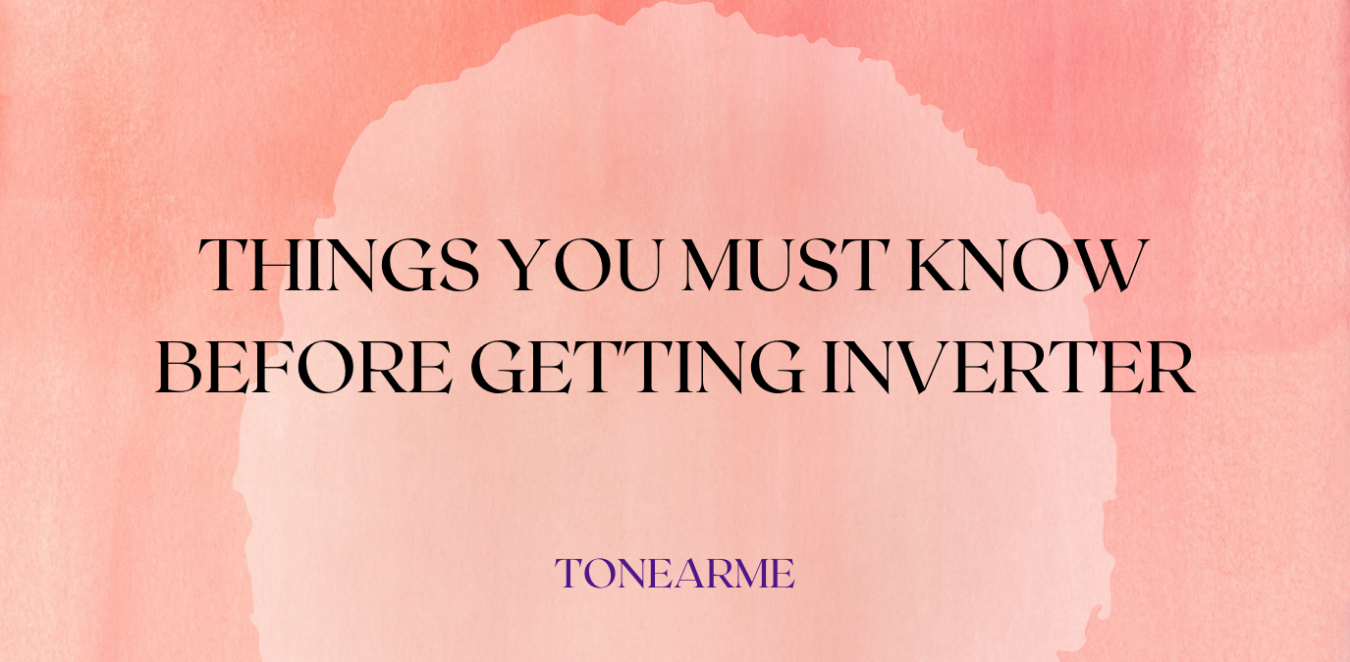Inverter With Battery : Must Know Before Getting Inverter
Inverter With Battery, is a blog dedicated to how to pick the best inverters, with outages ranging from 2 to 4 hours in cities to 8 hours or more in small towns and villages. This makes life more difficult on a daily basis, necessitating the installation of power backups.
Although there are numerous solutions to this problem, the inverter-battery system is the most common in India. When considering acquiring a new inverter, it is essential to avoid marketing tricks and have a basic understanding of related facts that will prove to be quite useful before making a purchase.
One such critical element is choosing the appropriate inverter/battery system. We'll go through numerous power backup systems, their benefits and drawbacks in various scenarios in this somewhat lengthy article.
Understanding How Much Power You Will Need
The most crucial thing to do before acquiring any of the solutions listed above is to know what you need. It is critical that you understand two factors before evaluating the power requirement:
The total amount of data you'd like to back up: This is necessary in order to obtain the proper inverter size for a power backup system. The VA value is what we mean by size. It's critical to know the wattage (or watts) of each device you wish to operate on the backup before you can calculate the VA value. In the section following, we go through this in further depth.
Can You Run Bigger Appliances On Your Inverter
Refrigerators and air conditioners have compressor motors that require a large amount of energy to start (unless you have an inverter refrigerator or air conditioner). As a result, inverter space and VA requirements are much higher.
Normally, a 250-liter refrigerator consumes 300-350 watts when it is at rest, but since it requires more power to start up, it requires a 2.5-kVA inverter to maintain it. Refrigerators use 1.5-2 units of energy per day because the compressor starts and stops according to the cooling demand.
Also, because air conditioners have significant demands, we do not advocate using inverters with them. A 3.5 kVA inverter is required to control the initial load of a 1 tonne AC that normally uses 1000 watts (or 1 kW). A 1.5 tonne air conditioner consumes 1500 watts and requires a 5 kVA inverter to run. ACs need a lot of electricity; a 1 tonne AC uses roughly 0.8-1 unit per hour, while a 1.5 tonne uses about 1.5 units. As a result, if you use an inverter to run your AC, you'll need more batteries.
Issues With Inverter Voltage And Longer Backup Requirements.
Many individuals experience extended power outages (8-10 hours), making it difficult to set up inverters unless the load is quite light. As previously stated, 12 V batteries in the sizes of 100 Ah, 120 Ah, 150 Ah, 180 Ah, and 200 Ah are commonly available. If you want 400 Ah of battery capacity for a longer backup, you will need two 200 Ah batteries. However, this introduces a new problem: inverter voltage.
If you require 200 Ah of backup, buy two 100 Ah batteries and connect them in series. And it will take a while to charge, which is approximately 10 hrs. However, higher voltage inverters have a greater VA value. A 24 V system, for example, begins at 1400 VA and goes up from there.
Various Kinds Of Inverters

Pure Sine Wave Inverter and Modified Sine Wave Inverter are the two types of inverters available on the market (or Square Wave Inverter). The option you choose will be determined on the type of appliances you have.
If you wish to use an inverter to power electronic items (such as TVs and computers), choose a Pure Sine Wave Inverter ; otherwise, use a Modified Sine Wave Inverter.
Please don't change anything. When used with induction motors such as ceiling fans, a Sine Wave Inverter can produce a buzzing noise.
Types Of Inverter Batteries

Flat Plate, Tubular, and Maintenance-Free batteries are the three types of batteries on the market. Tubular Batteries are the finest choice for inverters, without going into too much detail. Although they are somewhat more expensive than Flat Plate, they will endure longer. Although maintenance-free batteries appear to be a fantastic idea, they have a shorter life expectancy (4-5 years as compared to 7-8 years of a tubular battery).
However, the most crucial aspect of using batteries for extended periods of time is to ensure that they are periodically topped up (filled) with distilled or RO water and that fluid levels are maintained.
Cost Of 500 VA Inverter And 100 AH Battery?
A 500 VA inverter costs roughly Rs. 3,000, while a 100 AH battery costs around Rs. 10,000. As a result, an inverter with 500 VA and 100 AH battery would set you back roughly Rs. 13,000 (approximately). Why not go online and look for and compare the best offers to save money on the middle man? The quality of the items and warranties remain the same, and because some e-commerce sites now offer cash on delivery, you won't have to worry about delivery.
More Things To Keep In Mind
When buying batteries, search for the longest warranty possible. Manufacturers send their engineers for maintenance on a regular basis, which extends the life of the inverter/battery system. An inverter battery combination of the same brand is handy at times.
Previously, inverters and batteries were made by independent companies. Su-kam, Luminous, and Microtek were well-known inverter makers, whereas Amaron, Exide, and others were well-known battery producers. However, all of them now offer inverter-battery combinations, in which the batteries and inverters are intended to function together. As a result, a combination system works well.
The inverter is a maintenance-free equipment that does not need to be serviced on a regular basis unless in the event of a breakdown. Only the batteries require maintenance.
Conclusion
So, this was all you needed to know before buying an Inverter with battery, we hope you found it useful. If you liked this blog, don’t forget to save it by bookmarking it.







